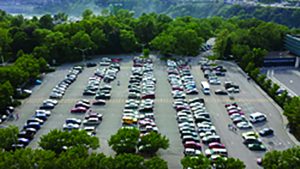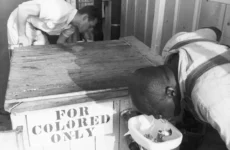by Mike Hudson
Three dollar an hour parking meters? You bet.
Not in Los Angeles, where parking meter rates average $1.75 an hour. New York City has some meters that charge as much as $3.50 an hour in lower Manhattan, but throughout most of the Five Boroughs the rate is $1.00 to $1.50.
Last year, controversy erupted when Buffalo raised its’ rate from 50 cents to $1 an hour on all 4,700 parking meters throughout the city.
About 40 solar powered parking meters have been installed in downtown Niagara Falls, turning formerly free parking spots into paid ones. Depending on the season, the rates are as high as $3 an hour.
To date, city officials have not said how much the meters cost to install, and no budget regarding their operation has been created.
Each of the meters reportedly covers between seven and 12 individual parking spots, or approximately 270 total.
John Caso, the director of public works, said three temporary staff members and 15 in the peak tourist months will be dispatched to handle the enforcement. Police Superintendent Bryan DalPorto will devote a single traffic patrolman to keep an eye on the time-restricted spaces.
No one has said anything about how much that’s going to cost.

It costs $10 for the entire day to park in the Niagara Falls State Park which is why most people who come to Niagara Falls need to park their cars to see.
“We’re getting more and more visitors every year in downtown Niagara Falls, that means we have to use our parking resources wisely. It also means all these years we haven’t been charging on the street down there, we’ve frankly been leaving money on the table,” said Niagara Falls Mayor Paul Dyster.
A couple of questions immediately pop up. First, who would pay $3 an hour to park unattended on the street here when they could park all day at one of the State Park lots or the One Niagara lot just outside the park for $10?
The Niagara Falls City Council picked the Chicago firm of Desman Associates to implement Dyster’s parking plan without knowing how much it would cost to install the meters. The work is ahead of schedule and the Council still hasn’t passed an enforcement resolution.
Desman received more than $112,000 just to do the study.
Dyster told radio host Tom Darro the cost to install the meters would be $350,000, but the actual cost has never been revealed.
In March, the Council approved resolution that gave the installation contract to bid to BER-National for $355,190 and added an additional $86,250 for the purchase of license plate scanning devices for the plan’s enforcement, which remains unresolved.
Representatives for Desman have said that the meters will generate as much as $1 million in new revenue here, and that the city should add a parking meter manager to the payroll.
Desman has also recommended the creation of a parking committee consisting of the four top city department heads, including the city controller, police chief, director of public works and city attorney. The committee would work with the parking manager to ensure the system is being properly monitored and operating in the city’s best interest.
Desman has estimated annual expense for the program at about $100,000, suggesting that once fully installed the meters could return a little more than $176,000 in revenue for a full year, not including funds collected through parking violations.
Dyster said the total cost for staffing would be $87,360, but said the issues of staffing and maintenance were “independent of the technology,” whatever that means.
Thus far, the running tab on the meters is $553,440. The have brought in exactly nothing in revenue. One other thing Dyster forgot to mention is that the computerized meters have to be connected to a server. How much that will cost is anybody’s guess.




















